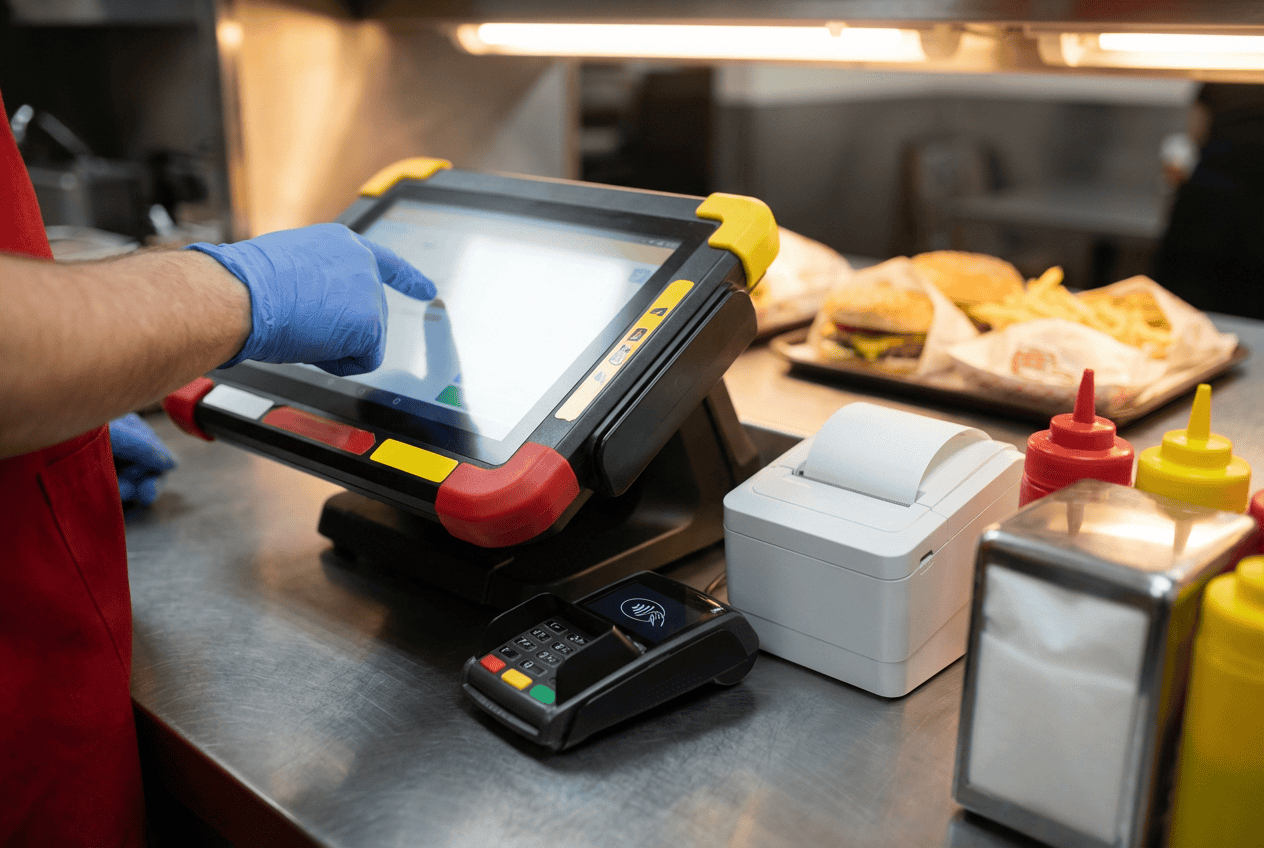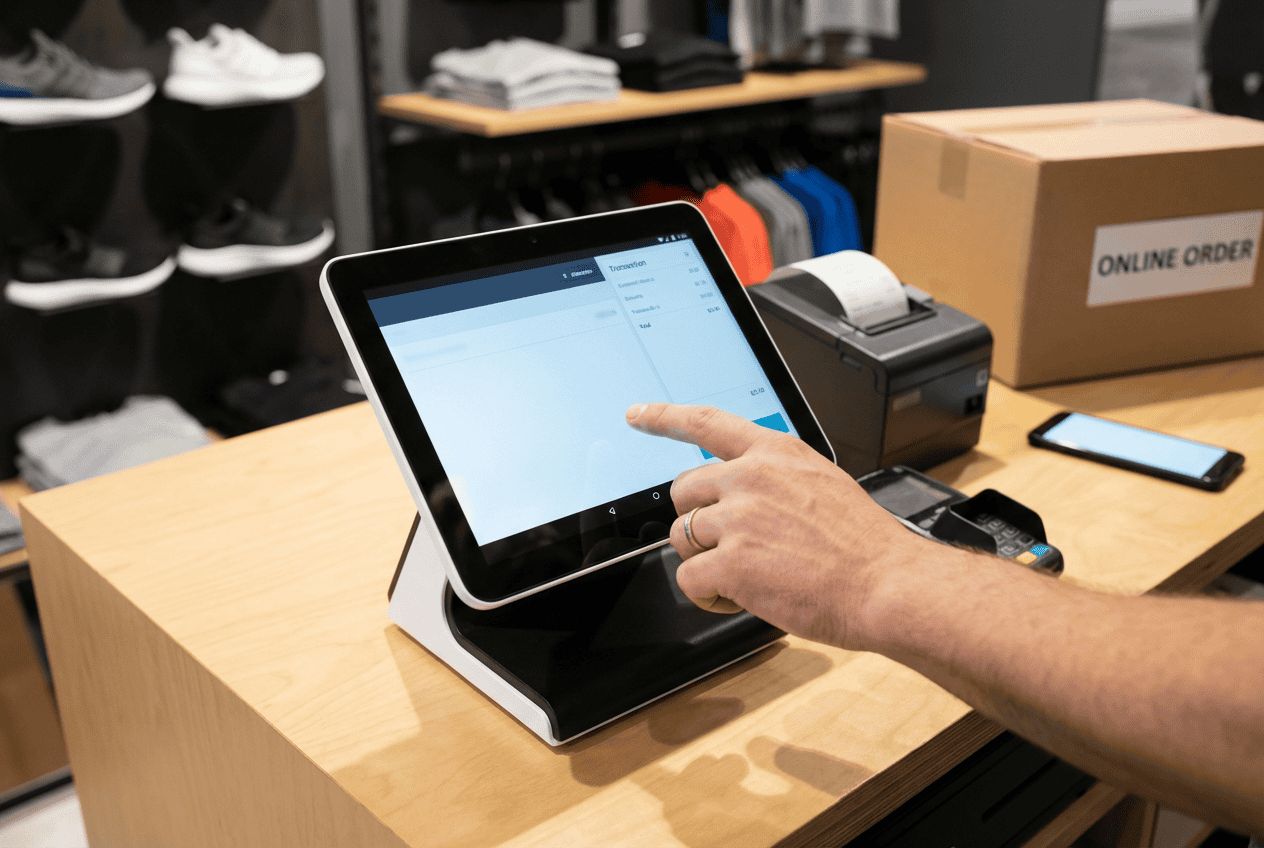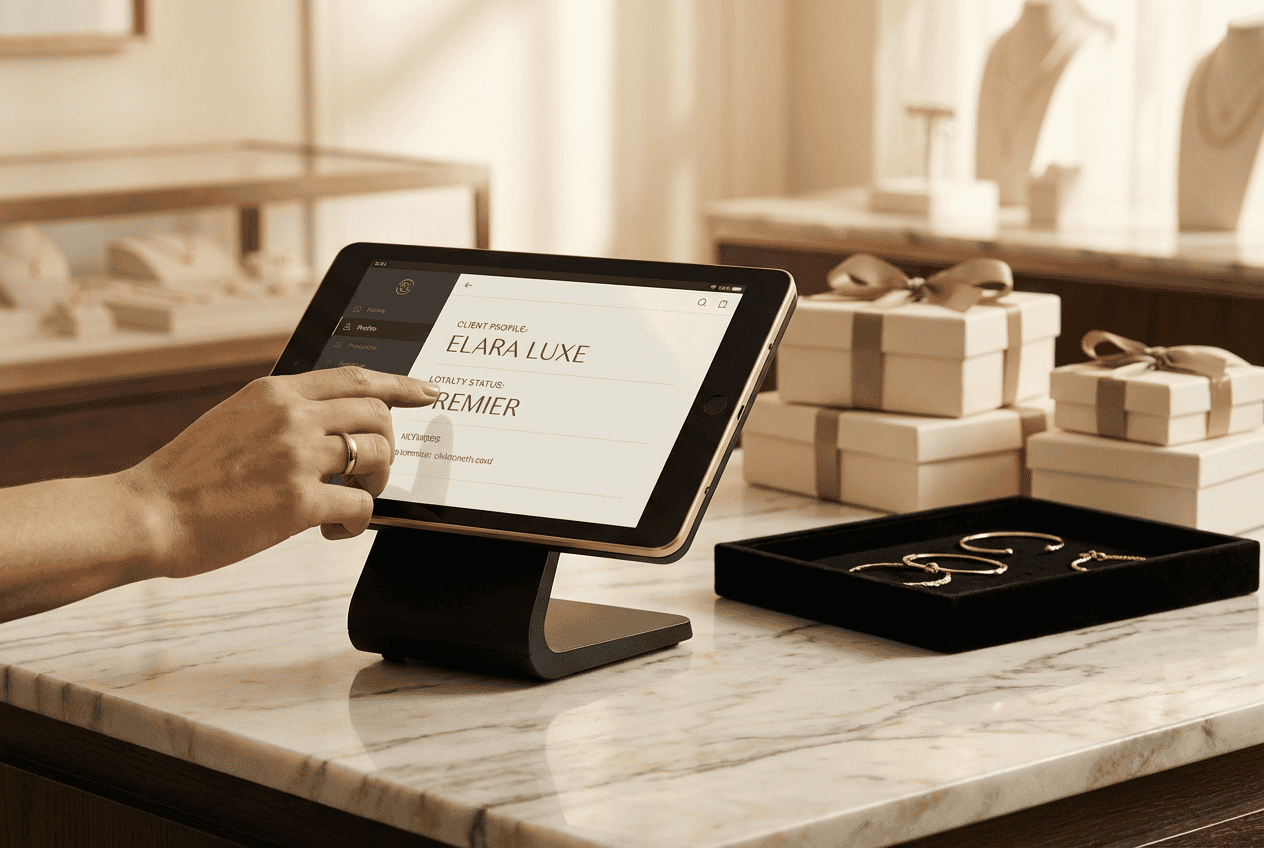In Singapore’s fast-evolving retail landscape, efficiency, personalization, and convenience have become critical to success. One technology that’s rapidly changing how retailers operate is the POS self-service kiosk. Once a novelty, these systems are now considered essential in improving customer experience, reducing operational costs, and staying competitive—especially in a tech-savvy market like Singapore.
In this article, we’ll explore how POS self-service kiosks can be a game-changer for retailers in Singapore, what benefits they offer, how local businesses are adopting them, and what to consider before integrating one into your store.
What Is a POS Self-Service Kiosk?
A POS (Point of Sale) self-service kiosk is a digital terminal that allows customers to browse products, place orders, and make payments independently—without the need for staff interaction. These kiosks are often touchscreen-based and can be fully integrated with inventory management, customer loyalty programs, and payment gateways.
Commonly seen in quick-service restaurants, convenience stores, and fast fashion outlets, self-service kiosks are now making inroads into mainstream retail across Singapore.
Why Singapore Retailers Are Turning to POS Kiosks
Labor Cost Efficiency
Singapore has some of the highest labor costs in Southeast Asia, making operational efficiency a priority for retail businesses. POS kiosks help mitigate this by reducing the number of frontline staff needed for basic transactions.
Fact: According to the Ministry of Manpower (MOM), Singapore’s median gross monthly income reached S$5,070 in 2024, up from S$4,680 in 2022. This rising cost directly affects retail margins.
Faster Checkout and Reduced Queues
Long queues are a known deterrent for in-store shoppers. With kiosks, customers can skip the line, browse at their own pace, and check out in less than half the time of a traditional cashier interaction.
Improved Customer Experience
Singaporean consumers are digitally savvy and expect seamless service. POS kiosks provide:
- Multiple language support (English, Chinese, Malay, Tamil)
- Personalized product recommendations
- Integration with digital wallets like PayNow, GrabPay, and NETS
These features not only make the experience more pleasant but also help drive upsells and repeat purchases.
Real-World Adoption in Singapore
Case Study 1: Fast-Food Chains: Chains like McDonald’s, KFC, and Burger King Singapore have widely adopted self-service kiosks. Customers can customize meals, pay digitally, and skip the counter completely, driving faster turnover and higher order values.
►►► Optimal solution set for businesses: Multi store POS, Next-gen POS, Inventory Management Software (MSI), Self Service, Automation, Backorders
Case Study 2: Fashion Retailers: Brands like UNIQLO Singapore use RFID-enabled kiosks for automatic item recognition during checkout, reducing human error and increasing transaction speed.
Case Study 3: Local SMEs: Local businesses, especially in F&B and specialty retail (like bubble tea, snacks, or electronics), are increasingly adopting compact POS kiosks to maximize floor space while minimizing overhead costs.
Key features and functionality of POS self service kiosks
User-friendly interface
One of the standout features of POS self-service kiosks is their intuitive and user-friendly interface. Designed with the customer in mind, these kiosks offer a seamless experience, allowing users to effortlessly navigate through the menu, browse available options, and complete transactions with ease. The interface is thoughtfully crafted to minimize confusion and maximize efficiency, ensuring that customers of all technological backgrounds can interact with the kiosk confidently and without any hassle. Whether it’s selecting items, customizing orders, or making payments, the user-friendly interface of POS self service kiosks enhances the overall shopping experience and encourages repeat usage.
Barcode/QR scanning
The advanced barcode and QR code scanning capabilities integrated into POS self service kiosks empower customers to effortlessly scan items for purchase. By simply scanning the barcode or QR code of products, customers can swiftly add items to their cart, expediting the checkout process and enhancing overall efficiency. This intuitive feature not only saves time for both customers and staff but also provides a seamless and convenient shopping experience.
Multi-device compatibility
POS self service kiosks prioritize accessibility by ensuring compatibility with a wide range of devices, including smartphones and tablets. This compatibility empowers customers to access the kiosk interface seamlessly from their preferred device, whether it be their smartphone, tablet, or any other mobile device they may have on hand. This versatility enhances convenience and flexibility, accommodating diverse customer preferences and ensuring a smooth and personalized shopping experience tailored to individual needs.
Integration with existing systems
POS self service kiosks should offer seamless integration with a variety of existing inventory management systems commonly used by retailers. This integration ensures a smooth flow of information and data between different components of the retail operation. By facilitating real-time synchronization of data, such as sales transactions and inventory levels, these kiosks help retailers maintain accurate records and streamline their overall operations.
Multiple checkout options
POS self-service kiosks offer a variety of payment options to accommodate diverse preferences. Whether customers prefer to pay with cash, credit/debit cards, mobile payments, or contactless payments, these kiosks offer flexibility and convenience at checkout. By catering to different payment methods, POS self service kiosks enhance the overall shopping experience and ensure that customers can complete their transactions seamlessly, regardless of their preferred payment method. This versatility fosters customer satisfaction and loyalty, contributing to increased sales and repeat business for retailers.
Security measures and compliance
To ensure the security of transactions and compliance with industry standards, POS self service kiosks are equipped with robust security measures, such as encryption technologies and PCI compliance, safeguarding sensitive customer information.
The benefits of POS self service kiosks
Enhanced customer experience
POS self service kiosks redefine the retail experience by offering unparalleled convenience and efficiency. With intuitive interfaces and seamless navigation, customers enjoy a personalized shopping journey, where they can effortlessly browse products, tailor orders, and finalize transactions independently. By minimizing wait times and maximizing satisfaction, these kiosks elevate the overall shopping experience, fostering long-term customer loyalty and retention.
Increased operational efficiency
POS self service kiosks automate a myriad of tasks, including order-taking and payment processing, which were traditionally managed by staff. By delegating these functions to the kiosks, retailers experience a significant reduction in reliance on manual processes, resulting in streamlined operations, minimized errors, and optimized resource allocation. This newfound efficiency allows retailers to redirect their workforce towards enhancing customer service, refining product offerings, and exploring innovative growth opportunities, ultimately paving the way for unparalleled operational excellence in the retail landscape.
Improved inventory management
POS self service kiosks offer real-time inventory tracking and management capabilities, enabling retailers to maintain accurate stock levels and minimize stockouts. By providing insights into product movement and demand trends, these kiosks help retailers optimize their inventory management strategies, reduce carrying costs, and maximize profitability.
Boosted sales and revenue
Implementing POS self service kiosks can increase sales and revenue for retailers. By enhancing the shopping experience, improving operational efficiency, and optimizing inventory management, these kiosks attract more customers, encourage repeat business, and drive higher transaction volumes, ultimately contributing to overall business growth and success.
Implementing POS self service kiosks in Singapore retail
The current retail landscape in Singapore
Singapore’s retail landscape is dynamic and rapidly evolving, characterized by a diverse mix of traditional brick-and-mortar stores and innovative digital commerce platforms. With the rise of e-commerce and changing consumer preferences, retailers in Singapore are facing increasing pressure to adapt to new trends and technologies to stay competitive in the market.
Traditional brick-and-mortar retailers are facing challenges from the growing popularity of online shopping, prompting them to explore new strategies to attract and retain customers. At the same time, digital commerce platforms are reshaping the way consumers shop, with mobile shopping apps and e-commerce websites offering convenience and accessibility to Singaporean shoppers.
Challenges faced by retailers in Singapore
Despite Singapore’s reputation as a leading retail hub in Asia, retailers face several challenges in the current landscape. These challenges include:
- Labor shortage: Singapore’s retail industry is experiencing a shortage of skilled labor, particularly due to rising costs and talent competition.
- Rising operating costs: retailers in Singapore are grappling with escalating operating costs, including rent, utilities, and labor expenses, which are putting pressure on profit margins.
- Changing consumer behavior: the preferences and expectations of Singaporean consumers are constantly evolving, driven by factors such as technological advancements, urbanization, and globalization. Retailers must adapt to these changing behaviors to remain relevant and attractive to customers.
How POS self-service kiosks address these challenges
In this rapidly changing landscape, retailers must leverage technology to enhance the shopping experience, optimize operations, and differentiate themselves from competitors. Implementing POS self-service kiosks is one such technology-driven solution that can help retailers address the challenges and opportunities presented by the evolving retail landscape in Singapore. These kiosks offer a range of benefits, including improved customer experience, increased operational efficiency, and enhanced inventory management, making them a valuable asset for retailers looking to thrive in the competitive Singaporean market.
POS self service kiosks offer innovative solutions to address the challenges faced by retailers in Singapore:
- Labor shortage: by automating routine tasks such as order-taking and payment processing, POS self-service kiosks help retailers reduce their reliance on human labor and mitigate the impact of labor shortages. This enables retailers to operate more efficiently and effectively with fewer staff members.
- Rising operating costs: POS self-service kiosks help retailers optimize their operational expenses by streamlining processes and increasing productivity. With lower labor costs and improved efficiency, retailers can achieve cost savings and maintain healthy profit margins in the face of rising operating costs.
- Changing consumer behavior: POS self-service kiosks cater to the preferences of tech-savvy Singaporean consumers who value convenience, speed, and self-service options. By offering a seamless and intuitive shopping experience, these kiosks attract and retain customers, driving sales and enhancing customer loyalty in an increasingly competitive market.
Challenges to Consider
While POS kiosks offer significant upsides, there are important factors Singapore retailers should evaluate:
Initial Investment: Hardware, software, and customization can be expensive upfront. However, costs are dropping as the technology becomes mainstream.
Maintenance and Support: Self-service kiosks need to be reliable. Downtime directly impacts customer satisfaction, so retailers must plan for ongoing support and maintenance.
Accessibility: Not all customers are comfortable with digital interfaces, especially elderly shoppers. Offering assisted kiosk modes or maintaining a staffed counter is key for inclusivity.
Integration Complexity: Seamless integration with WooCommerce, Shopify, Magento, or legacy POS systems may require custom APIs or third-party middleware.
Top Self-Service Kiosk Providers in Singapore
Here are some top-rated POS kiosk providers tailored for Singapore retailers:
| Provider | Key Features | Suitable For |
|---|---|---|
| TabSquare | AI-driven menu recommendations, F&B focus | Restaurants, cafés |
| Qashier | All-in-one POS + Kiosk + Payments | SMEs, F&B, retail |
| ConnectPOS | Omnichannel POS with kiosk support | Fashion, electronics, enterprise retail |
| iMin | Android-based kiosk hardware | Quick-service, kiosks, retail counters |
| SKALE | CRM + POS integration, loyalty tools | Malls, franchises |
Future Trends: What’s Next for POS Kiosks in Singapore?
- AI-Powered Upselling: Dynamic product suggestions based on past purchase history.
- Facial Recognition: Fast login or payment authentication tied to loyalty programs.
- Multi-Platform Checkout: Integration with mobile apps and QR scan-to-pay models.
- Green Kiosks: Paperless receipts, energy-efficient screens, and smart power management.
With Singapore’s Smart Nation initiatives and a digitally literate population, adoption of smart kiosks is only set to grow.
Final Thoughts: Should Your Business Adopt a POS Self-Service Kiosk?
If you’re operating in Singapore’s competitive retail space, a POS self-service kiosk can be more than a trend—it can be a strategic tool to boost profitability, efficiency, and customer satisfaction. Whether you’re a local F&B outlet, a fashion retailer, or a large franchise, the right kiosk solution can significantly impact your operations.
- POS kiosks reduce costs and speed up transactions
- Singaporean consumers appreciate digital autonomy
- Consider integration, accessibility, and ongoing support
- Top vendors include TabSquare, Qashier, ConnectPOS, and iMin
- Future trends include AI personalization and cross-device synergy
In 2025 and beyond, retail success in Singapore will depend on how well businesses leverage smart technologies like POS self-service kiosks.
Frequently asked questions (faqs) about POS self-service kiosk
- What exactly is a POS self-service kiosk, and how does it differ from traditional POS systems?
A POS self service kiosk represents a paradigm shift in retail technology, offering customers unprecedented autonomy in their shopping experience. Unlike traditional POS systems reliant on staff, these kiosks empower customers to navigate the entire transaction process independently. With intuitive interfaces and interactive displays, customers can browse products, customize orders, and finalize transactions seamlessly. This self-sufficient approach not only enhances efficiency but also provides customers with a sense of control and convenience. By eliminating the need for cashier assistance, POS self-service kiosks redefine the retail landscape, offering a modern solution that aligns with evolving consumer preferences for self-service and digital convenience.
- How can POS self-service kiosks improve the overall shopping experience for customers in Singapore?
POS self-service kiosks enhance the shopping experience for customers in Singapore by providing convenience, efficiency, and autonomy. With intuitive interfaces and easy navigation, customers can quickly find products, customize orders, and complete transactions, reducing waiting times and enhancing satisfaction. Additionally, self-service kiosks offer multiple payment options, including cash, credit/debit cards, and mobile payments, catering to the diverse preferences of Singaporean shoppers.
- Are POS self-service kiosks suitable for all types of retail businesses, or are there specific industries where they are most effective?
POS self-service kiosks exhibit remarkable adaptability, seamlessly integrating into diverse retail sectors ranging from supermarkets to fast food restaurants and apparel stores. While their versatility makes them suitable for a wide array of businesses, their effectiveness shines brightest in environments prioritizing speed, convenience, and efficiency. Specifically, high-traffic retail outlets and quick-service restaurants benefit immensely from the streamlined operations and enhanced customer experience facilitated by POS self-service kiosks. Their ability to cater to the unique demands of these industries makes them indispensable tools for maximizing productivity and customer satisfaction.
- What security measures are in place to protect customer data when using POS self-service kiosks?
POS self-service kiosks are equipped with robust security measures to protect customer data and ensure privacy. These measures may include encryption technologies, secure payment processing protocols, and compliance with industry standards such as PCI dss (payment card industry data security standard). Additionally, retailers can implement measures such as user authentication and data encryption to enhance security further and protect sensitive customer information.
- Can POS self-service kiosks be integrated with existing retail systems and software?
Yes, POS self-service kiosks can be integrated with existing retail systems and software to ensure seamless operation and data synchronization. By integrating with POS systems, inventory management software, and other retail systems, self-service kiosks enable retailers to maintain accurate records, track sales data, and streamline operations across multiple channels. Additionally, integration allows retailers to leverage the functionalities of their existing systems while harnessing the benefits of self-service kiosk technology, ensuring a cohesive and efficient retail ecosystem.
Conclusion
The adoption of POS self service kiosks can be the secret weapon for retailers aiming to excel in Singapore’s competitive retail market. By leveraging the benefits of these kiosks—enhanced customer experience, operational efficiency, and adaptability—retailers can position themselves for success. To unlock the full potential of POS self-service kiosks and ace the retail game in Singapore, contact us for further inquiries and take the first step towards retail excellence.
►►► Optimal solution set for businesses: Shopify POS, Magento POS, BigCommerce POS, WooCommerce POS, NetSuite POS, E-Commerce POS



